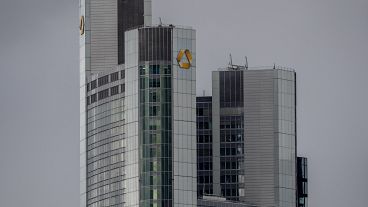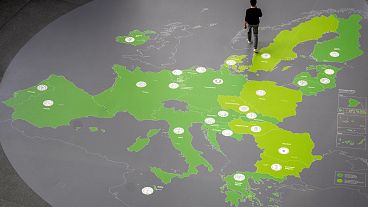Germany's business confidence slumped for the fourth straight month in September, but the DAX stock index is defying the economic gloom, nearing record highs.
Germany's business confidence slumped for the fourth straight month in September, falling to levels not seen since the start of the year, yet the country's major stock index seems blissfully unaware, pushing towards record highs as if economic woes were just background noise.
The ifo Business Climate Index, which compiles data from about 9,000 businesses across various sectors such as manufacturing, services, trade, and construction, dropped to 85.4 points in September, missing the expected 86, down from 86.6 in July.
This decline reflects a sharp worsening of current business conditions, with the index falling to 84.4 points - the lowest level since July 2020.
"Sentiment has once again deteriorated at companies in Germany. The outlook for the coming months continues to decline. The German economy is coming under ever-increasing pressure," remarked ifo Institute president Clemens Fuest.
The manufacturing sector suffered particularly, as the index hit its lowest level since June 2020. Businesses reported a significantly poorer current situation, with expectations for the future also worsening.
"The lack of orders has intensified. Core sectors of German industry are struggling," the ifo Institute noted.
The trade sector also experienced a downturn, with increasing scepticism about future conditions.
The bleak outlook comes alongside a broader economic slowdown in Germany. Private sector data from S&P Global showed a contraction in September, hitting a seven-month low.
Manufacturing posted its steepest contraction in a year, while growth in the services sector also weakened.
Increased US political uncertainty threatens German exports
As if the German economy needed more bad news, the ifo Institute pointed out that a Donald Trump re-election could further sink the country's export prospects.
According to a recent analysis, Germany's exports to the United States could plunge by nearly 15% if Trump wins and follows through on his pledge to slap new tariffs on imports.
Auto exports could drop by a whopping 32%, while pharmaceutical products might see a 35% decline.
"As a highly export-oriented nation, Germany would suffer significantly from US tariff increases and an escalating trade war between the US and China, its two most important trading partners,' warned the ifo Institute.
Over a four-year period, the hit to Germany's GDP could be somewhere between €120bn and €150bn, according to their estimates.
German stocks decouple from economic reality
The DAX doesn't seem to care about the economic gloom. Despite all the grim headlines, the DAX appears to be living in an alternate reality.
While Germany's economic fundamentals are crumbling, its flagship stock index is thriving, trading at 19,000 points during early Tuesday sessions - up 0.7% and just a hair's breadth away from its all-time high.
It's a familiar pattern in global markets lately, where investors are encouraged by signs of monetary easing from major central banks.
The People's Bank of China surprisingly announced measures to stimulate its economy overnight, including a 50-basis-point cut in the reserve requirement ratio by the end of the year.
A day earlier, the Chinese monetary institution also surprisingly slashed the 14-day reverse repurchase rate by 10 basis points to 1.85%.
Meanwhile, last week, the US Federal Reserve cut interest rates by 50 basis points for the first time in four years, with further cuts expected.
Weak data from the eurozone and Germany has only strengthened the odds of further rate cuts by the European Central Bank. Futures markets now give a nearly 50% chance of another rate cut in October.
Among the DAX's top performers was Infineon, which jumped 3.8%, as well as a host of German automakers.
BMW surged 3.3%, Porsche added 3.2%, while Mercedes-Benz, VW, and Daimler Truck Holding all posted gains nearing 2%.















